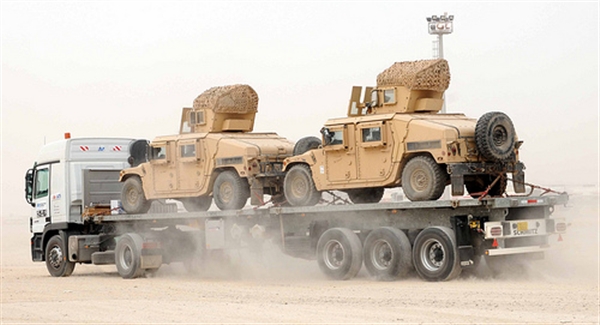Defence today released an Inquiry Officer report into an incident in Afghanistan where two Afghan men travelling on a motorcycle were shot by Australian forces on 11 August 2009.
The two men were later identified as Afghan National Police officers.
The Inquiry Officer concluded the engagement was conducted within the soldiers’ Rules of Engagement.
On the day, a combat team from the Mentoring and Reconstruction Task Force (MRTF) was conducting a patrol to investigate the possible point of origin of a rocket attack. In order to further examine the site and to control entry, a road cordon vehicle check point (VCP) was established.
The motorcycle driver was shot and killed when he failed to heed or understand verbal and visual signals to stop when approaching the VCP. The pillion passenger was wounded. He was given first aid treatment and medically evacuated to the Tarin Kowt military hospital for treatment.
The Inquiry Officer found neither officer was wearing a uniform at the time of the incident. He said the pillion passenger was wearing a blue shirt (which is consistent with the Afghan National Police uniform) but this did not become evident until after the casualties were attended to following the incident.
The Inquiry Officer visited the incident site and found it may not have been possible to see or hear the Australian soldiers until the motorcycle was reasonably close to the check point.
Of note, prior to the motorcycle approaching the VCP, three cars had obeyed visual signals to stop before being allowed to pass through the VCP.
The Inquiry Officer found a shortcoming with the Task Force’s then escalation of force procedures.
The International Security Assistance Force (ISAF) mandates the use of certain escalation of force procedures, including the firing of pen flares. This provides a theatre-wide standard. In addition, soldiers should have been issued with cards detailing escalation of forces procedures.
The Inquiry Officer concluded that in this case, the soldiers did not use pen flares because there was no awareness within the MRTF‑2. Nor, on the face of it, were previous rotations, the wider Joint Task Force and those responsible for force preparation in Australia aware that the use of pen flares was mandated for escalation of force situations.
He found that there was no evidence that contingents were briefed or trained on the ISAF escalation of force procedures prior to deployment. The soldiers were also not in possession of a soldier’s card outlining the ISAF escalation of force procedures.
The Inquiry Officer stated it was not possible to conclude, however, whether the firing of a pen flare as part of the escalation of force procedures would have obviated the need to use lethal force in this instance.
He also found the requirement to avoid civilian casualties was well understood within the Mentoring and Reconstruction Task Force in Afghanistan.
The Inquiry Officer found that the establishment of a VCP had not been anticipated that day and that the VCP stores were insufficient. He stated that since the incident, additional VCP equipment and new signs have been ordered.
The Chief of Joint Operations, Lieutenant General Mark Evans, has accepted the Inquiry Officer’s findings and is implementing the report’s recommendations.
In response to the recommendations, ADF force elements have reviewed escalation of force training and procedures, and new operational instructions have been issued which accord with the ISAF mandated requirements.
In addition, noting this shortcoming, Defence has commenced a national command audit of existing ISAF operational instructions to ensure Australian forces are complying with all ISAF mandatory requirements. Defence is also in the process of establishing a national command system for the routine review of new or amended ISAF operational instructions.
Defence is now issuing the prescribed soldiers’ card to assist ADF personnel with their understanding and application of ISAF escalation of force procedures. Additional escalation of force training will be incorporated into pre-deployment training, including better preparing legal officers deploying into theatre.
The Inquiry Officer recommended no administrative action be taken against any person involved in the incident and that no conduct warranted further investigation by the Australian Defence Force Investigative Service.
Lieutenant General Evans has extended condolences to the family of man killed in the incident and his wounded passenger.
Compensation was paid to the next of kin of the killed motorcycle driver and to the pillion passenger in accordance with local custom. Detail of the amount of the payment will not be made public for privacy and cultural reasons.
Media note: The redacted report can be found at: http://www.defence.gov.au/coi/
Media contact: Defence Media Liaison: (02) 6127 1999 or 0408 498 664
Press release
Ministerial Support and Public Affairs,
Department of Defence,
Canberra, Australia

 von
von 